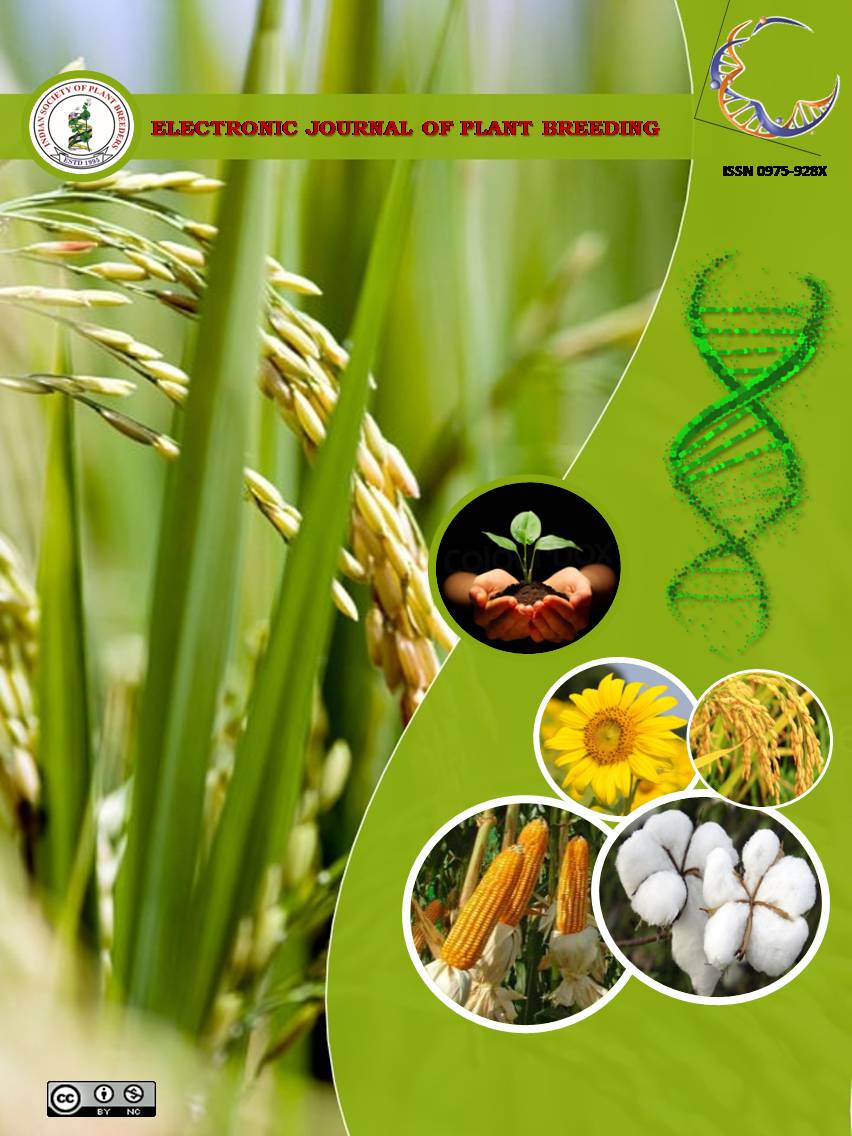A protocol for rapid screening of rice lines for seedling stage salinity tolerance
Abstract
Identification of tolerant genotypes based on phenotypic screening is one of the foremost requirements for studying genetics and molecular mapping of salinity tolerance trait in rice. For this to be accomplished efficiently, development of an efficient, reproducible, simple mass-screening protocol is imperative. The present study involves the development and validation of a modified, rapid, and reproducible protocol using sterilized silica sand as a base for growing the rice seedlings in the nutrient media replacing the generally deployed hydroponics based screening protocol where styrofoam is used as a base for seedling growth. Pre-germinated seeds were sown on silica sand filled plastic trays in three replications and modified Yoshida nutrient solution was periodically added for the first 21 days and appropriate quantities of NaCl was added to salinize the medium in different concentrations (60mM, 80mM, 100mM and 120mM). After a week of exposure to salinity, the seedlings were scored phenotypically and parameters associated with tolerance were recorded. The protocol was initially tested with known saline tolerant and sensitive rice genotypes and further validated in a set of introgressed Improved Samba Mahsuri breeding lines, possessing the QTL Saltol, which confers seedling stage tolerance to salinity. The modified protocol was able to clearly discriminate salt tolerant rice lines from sensitive ones and was superior to the routinely adopted hydroponics based protocol in terms of being more robust, reproducible, requires less nutrient solution and facilitating easy handling in screening of genotypes.

It is certified that:
- The corresponding author is fully responsible for any disputes arising due to the publication of his/her manuscript.
- The article has been seen by all the authors who are satisfied with its form and content.
- The sequence of names of authors in the by-line is as per their relative contribution to this experiment, giving due credit to all scientists who made notable contribution to it.
- All the authors fully understand that inclusion of any other co-authors or exclusion of any co-authors is not possible once the article has been submitted to the journal.
- The corresponding author takes full responsibility for this article.
- The address of the organization where the research was conducted is given.
- The article is exclusive for this journal, and the results reported here have not been sent (and will not be sent during its consideration by this journal) for publication in any other journal.
- Authors agree to abide by the objective comments of referees and do agree to modify the article into a short note as per the recommendation, for publication in the Electronic Journal of Plant Breeding.
- If published in Electronic Journal of Plant Breeding, the copyright of this article would vest with the Indian Society of Plant Breeders, who will have the right to enter into any agreement with any organization in India or abroad engaged in reprography, photocopying, storage and dissemination of information contained in it, and neither we nor our legal heirs will have any claims on royalty.


